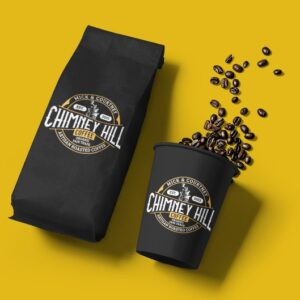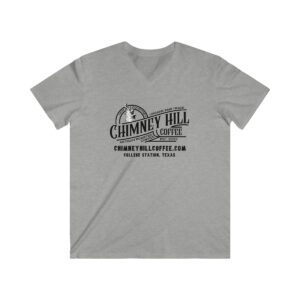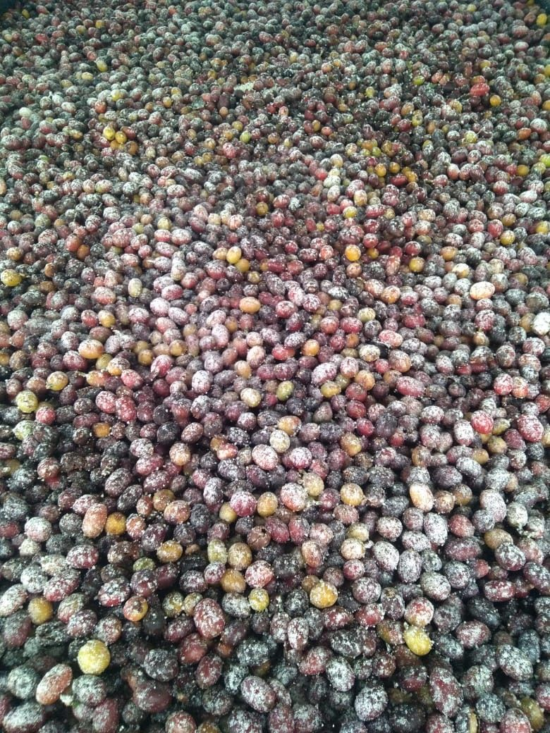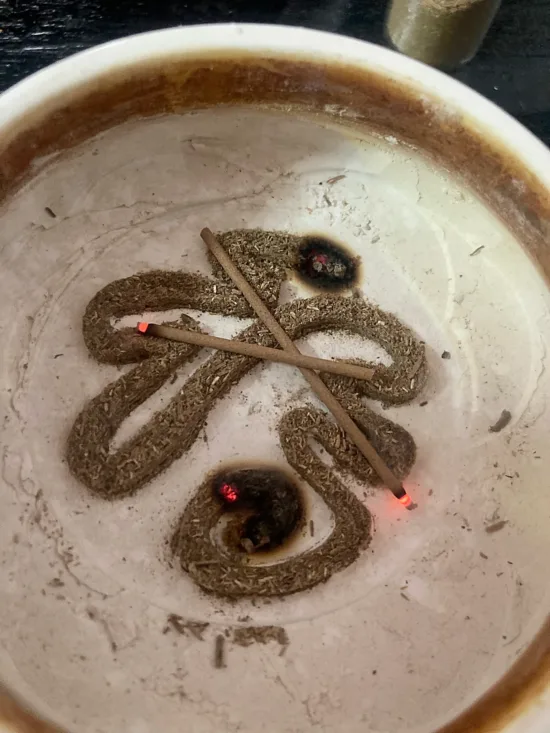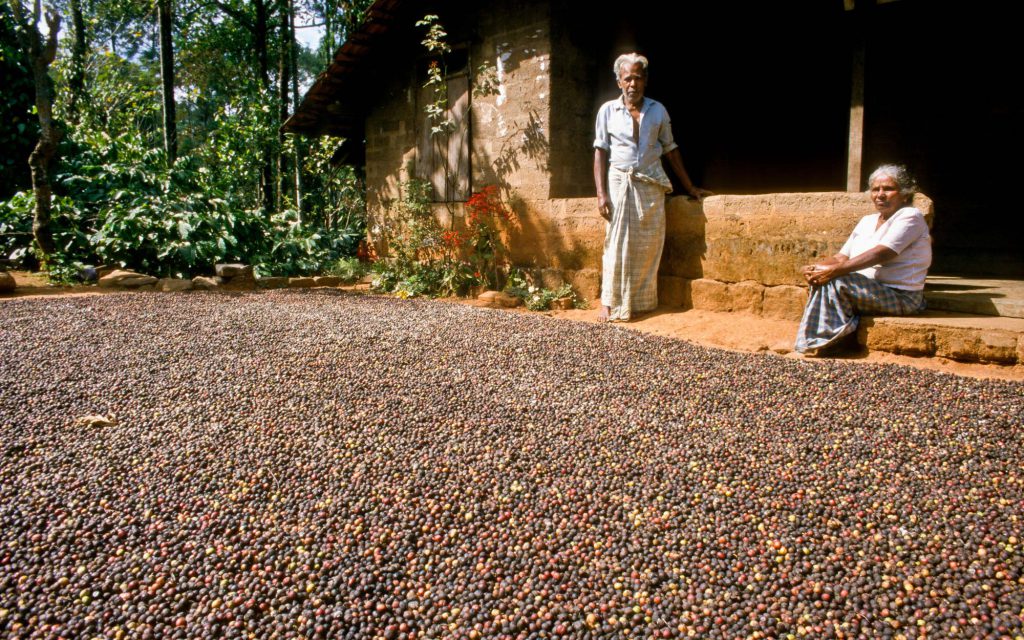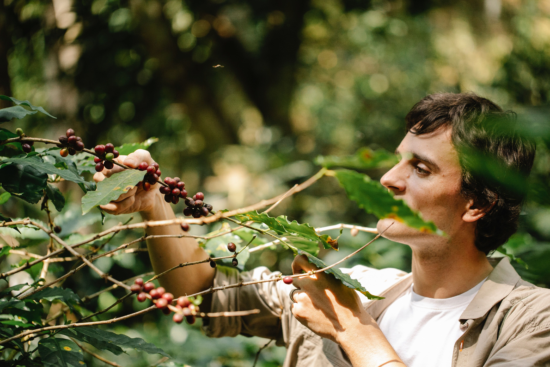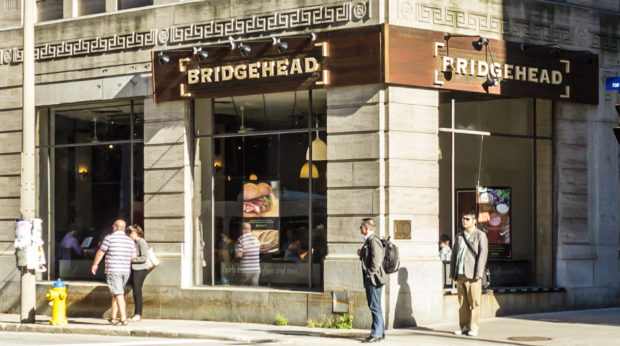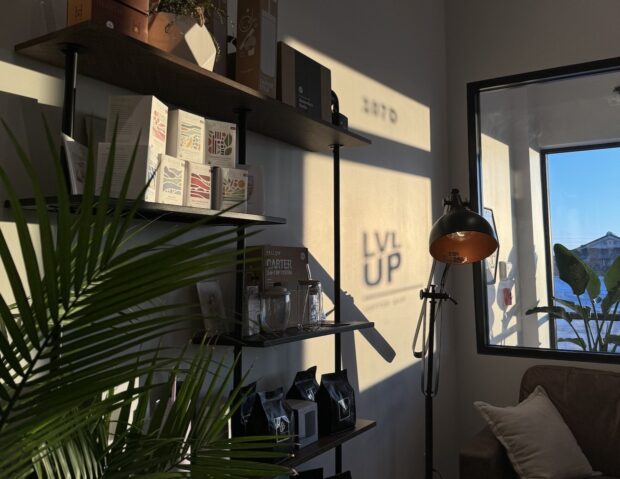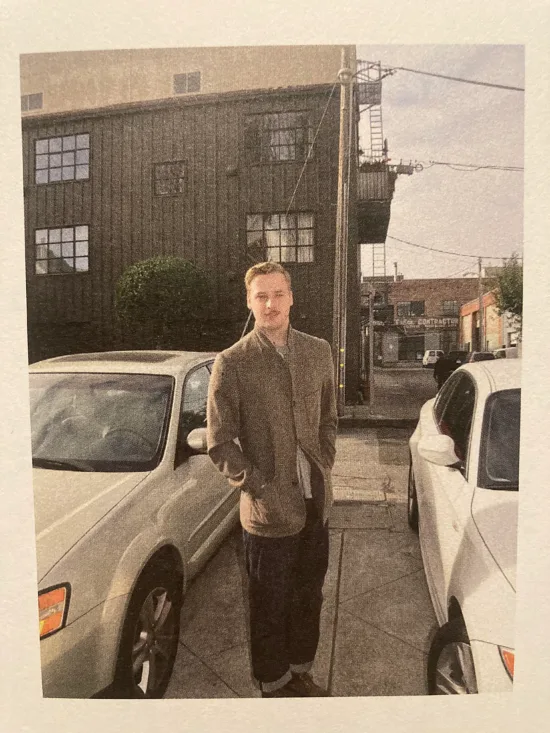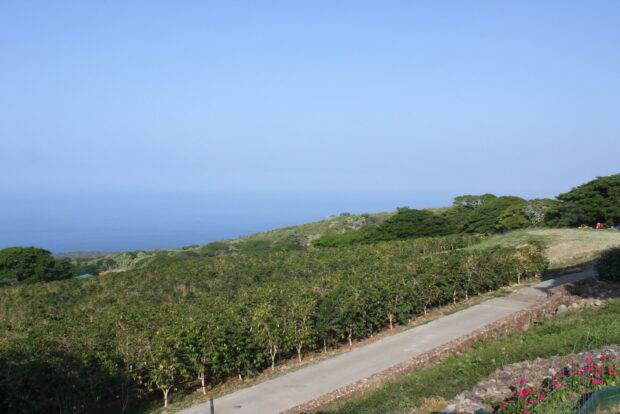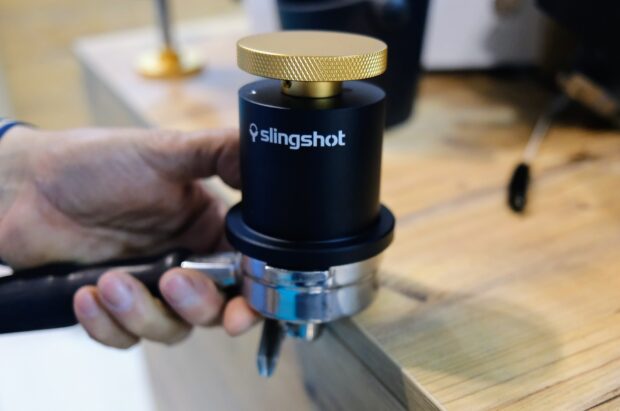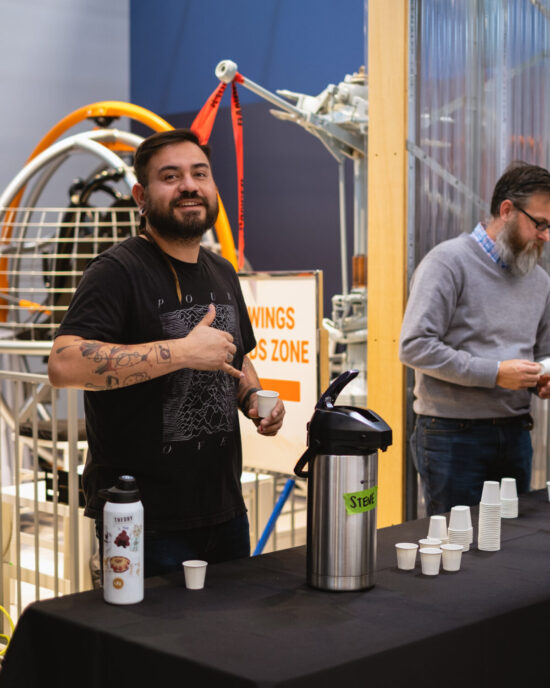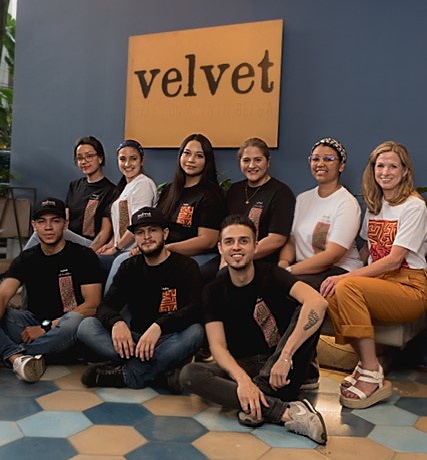The most affordable Keurig coffee maker is available exclusively at Walmart and comes at a sweet price of only $59.00. In this article, you’ll find out how good it really is, and also find additional information like how to clean it, or do you need a water...
Is the World Barista Championship too exclusive & expensive for competitors?
-

Chimney Hill Coffee
Price range: $18.99 through $79.99 -

Chimney Hill Coffee Men’s Fitted V-Neck Short Sleeve Tee
Price range: $20.31 through $21.50 -

Chimney Hill Coffee Women’s Favorite Tee
Price range: $14.54 through $16.66 -

Chimney Hill Coffee Unisex Jersey Long Sleeve Tee
Price range: $19.49 through $29.11
Is the World Barista Championship too exclusive & expensive for competitors?
Is the World Barista Championship too exclusive & expensive for competitors?
Is the World Barista Championship too exclusive & expensive for competitors?
Is the World Barista Championship too exclusive & expensive for competitors?
Is the World Barista Championship too exclusive & expensive for competitors?
Quick French Press Iced Coffee (No, It’s Not Cold Brew)
This is the absolute fastest way to make French press iced coffee. Just forget about cold brew concentrate – with this Quick French Press Iced Coffee Recipe you can have your iced coffee ready in 5 – 6 minutes. Who doesn’t like the French press?! It’s...
Here’s How to Change Keurig 2.0 Water Filter Easily
Not sure how to change Keurig 2.0 water filter? Here are step-by-step instructions that will help you do it quickly and easily. Keurig water filter should be changed every 2 months or 60 tank refills. The water filter is located inside the water tank, on the valve at...
The coffee rose for assessing Anaerobic coffee
I just came across this really neat tool to assess anaerobic coffees. I haven't used it for cupping yet. I'm not sure I will like it either because the idea of lowering the score of the coffee just because it tastes has some thyme flavors. At the same time I...
Three US Coffee Championship Events Are Heading To Rancho Cucamonga
This article is from the coffee website Sprudge at http://sprudge.com. This is the RSS feed version. The 2024 US Barista Championship, Brewers Cup, and Cup Tasters will take place March 15-17 at Klatch Coffee Roasters in Rancho Cucamonga, California.
The Origin Story of Turtle Island Coffee in Vancouver, B.C.
A new Indigenous-owned coffee company based in Vancouver, British Columbia, called Turtle Island Coffee has launched with the goal of exposing more people to high quality specialty coffee and Indigenous...
Get Ready for The Barista League’s 2024 Season
The Barista League has announced 12 competitions across four continents. BY J. MARIE CARLANBARISTA MAGAZINE ONLINE Photos courtesy of The Barista League When The Barista…
Get Ready for The Barista League’s 2024 Season
The Barista League has announced 12 competitions across four continents. BY J. MARIE CARLANBARISTA MAGAZINE ONLINE Photos courtesy of The Barista League When The Barista…
Get Ready for The Barista League’s 2024 Season
The Barista League has announced 12 competitions across four continents. BY J. MARIE CARLANBARISTA MAGAZINE ONLINE Photos courtesy of The Barista League When The Barista League announces new events, it’s worth paying attention! This year, the schedule will be...
Weekly Coffee News: EUDR and Africa + More Celebrity Coffee
Welcome to DCN’s Weekly Coffee News. Keep up with all the latest coffee industry stories and career opportunities by subscribing to DCN’s newsletter. Tell our editors about your news here. Report: Small-Scale Farmers in...
Do Higher Coffee Prices Mean More Money For Farmers? A Story From Sumatra Shows It’s Complicated
This article is from the coffee website Sprudge at http://sprudge.com. This is the RSS feed version. Since coffee costs more now than ever, do those coffee prices impact the amount of money earned by coffee farmers?
Coffee News Recap, 2 Feb: Applications open for Australia’s Richest Barista 2024, De’Longhi reports 4.6% revenue increase after La Marzocco move & other stories
Every Friday, Perfect Daily Grind rounds up the top coffee industry news from the previous week. Here are this week’s coffee news stories. The word of the week is: expansion. Mon, 29 Jan AeroPress launches limited-edition Clear Pink brewer. The coffee brewer is made...
Watch The 8 Best Coffee Videos Vying For Sprudgie Awards
This article is from the coffee website Sprudge at http://sprudge.com. This is the RSS feed version. The best coffee videos from 2023 featuring Cafe Imports, Aramse, Nguyen Coffee Supply, Wildly, Mirror Coffee Roasters, Alto Stories, Quek Shio, and Cafe Retiro.
Robusta is great and has untapped potential
I live in the US and my typical choice of coffee is lightly roasted Ethiopian pour overs. I generally love acidity and fruit flavors in my coffee. My experience with Robusta has often been poor. Very dark, roasty and maybe chocolatey. I participated in the Hoffman...
Design Details: Brewing Reinvented at ULA Café in Melbourne
Welcome to Design Details, an ongoing editorial feature in Daily Coffee News focused on individual examples of coffee shop architecture, interior design, packaging design or branding. If you are a coffee...
Robert Downey Jr.’s New “Happy Coffee” Is Really Depressing
This article is from the coffee website Sprudge at http://sprudge.com. This is the RSS feed version. Robert Downey Jr. and Craig Dubitsky team up for Happy Coffee.
Out Now: The February + March 2024 Issue of Barista Magazine!
In our new issue we feature Lisa Lawson from Glasgow, Scotland, take a look at the newest grinders, explore spring drink inspiration, see how more women are getting involved in coffee tech, and much more! BY SARAH ALLENBARISTA MAGAZINE We’re stoked to announce the...
The coffee industry’s biggest competition: The story of the World Barista Championship
Every year, the global coffee industry gears up for one of its most exciting and groundbreaking competitions: the World Barista Championship. For more than two decades, the WBC has been one of the biggest catalysts for change and innovation in specialty coffee, and...
The 2023 Specialty Coffee Transaction Guide Has Landed
The 2023 edition of the Specialty Coffee Transaction Guide (SCTG) guide went live today, providing actors throughout the coffee chain a data-driven tool for green coffee price discovery. The full...
Espro great until I needed replacement filter ☹️
I've had an Espro P7 for nearly four years after seeing glowing praise on this sub (to which I later contributed). Before I bought the P7 I looked at the replacement parts available and they seemed like a solid company in that they sold e.g. replacement filters...
New Bill Requires More Kona In Your Kona Coffee
This article is from the coffee website Sprudge at http://sprudge.com. This is the RSS feed version. Currently a coffee only need to be 10% Kona to be labeled as such.
What’s the best and worst part about owning and running a coffee shop?
I'm not interested in getting into it myself, as I have no experience in the service industry, no real appetite for risk and no desire to run a business in general. But sometimes I think about it and I wonder what's the most enjoyable thing about it and...
minimum dose size?
I use the Hario switch to brew my coffee and am trying to reduce my caffeine consumption. Hence I would like to brew smaller cups of coffee. I am currently using 10g of coffee with 160g of water. (1:16 Ratio) I am wondering if there is a minimum amount of coffee...
[CAFE OWNERS] Background before starting a shop?
I’ve worked in coffee for 6 yrs as a barista and shift supervisor and have passion for it. I’ve decided that I want to open my own place in the future and so I’ve been doing the research to make a business plan. Lately, however, I’ve begun to realize just how many...
Is the World Barista Championship too exclusive & expensive for competitors?
There are a number of competitions in specialty coffee designed to test the skills and knowledge of industry professionals. However, many consider the World Barista Championship (WBC) to be one of the most esteemed and highly regarded events, acting as a platform to showcase excellence in the barista profession.
There are many reasons to celebrate the WBC, but that’s not to say that it hasn’t received a fair share of criticism in recent years – particularly regarding a lack of inclusivity, diversity, and accessibility.
A large part of this criticism stems from WBC rules which state that competitors must either find funding or fund a significant portion of their expenses themselves. For some coffee professionals – especially those from low-income countries – this can be a major deterrent.
Ultimately, this begs the question – is the World Barista Championship too financially exclusive? And if so, how can we make it more accessible for those who need more financial support?
To find out, I spoke to four coffee professionals. Read on to learn more about what they had to say.
You may also like our article on whether the World Barista Championship needs to change.

A breakdown of competitor costs
The 2023 World Barista Championship Official Rules and Regulations state that:
“Licensed Competition Bodies are required to pay their Competition Body Champion’s reasonable travel and accommodations expenses to, from, and for the duration of the WBC. All other expenses not explicitly listed above are the sole responsibility of the competitor.”
As the WBC takes place in a different country each year, travel and accommodation are by far two of the biggest expenses for competitors. However, there are also a number of other costs which need to be accounted for.
Coaching and training
Wilford Lamastus Jr. is a producer at Lamastus Family Estate in Boquete, Panama. He is also a three-time World Brewers Cup Champion.
“If a competitor wants to perform well at the WBC, one of the biggest costs is to hire a coach – preferably a ‘famous’ one,” he says.
Wilford explains that this usually means working with a high-level coffee consultant or trainer. While competitors can certainly learn a lot from these prominent coffee professionals, they can also charge very high prices as World Barista Championship coaches – making them too financially exclusive for some.
Furthermore, training for the WBC is also time intensive, which can present an opportunity cost for some competitors.
Travel & logistics
Although national Specialty Coffee Association (SCA) chapters – as well as local governments and associations – can cover the cost of competitors’ plane tickets to the host country, it’s not always a given.
Wilford uses Melbourne, Australia as an example. The 2022 World Barista Championship took place at the Melbourne International Coffee Expo in September last year.
“It was exciting to go there, but as a Panamanian (or a national of any country in Latin America), you need at least US $3,500 for the plane ticket alone,” he explains.
However, even if major travel expenses are covered, competitors rarely attend these events alone. Plane tickets and accommodation for trainers and coaches, relatives, friends, and colleagues may need to be paid for, too.
It can also be challenging to find accommodation which is both affordable and close to the venue where the WBC is being held. This means some competitors may need to factor in extra transport costs to and from the venue, especially those with larger pieces of equipment.
Winston Thomas is a roaster at Cedar Coffee Roasters in Cape Town, South Africa. He is also the 2017, 2018, and 2020 South African Barista Champion.
He tells me that paying for extra luggage can be a huge financial burden.
“My wife had to leave some of her clothes at home [so we could take all of my competition gear], and I also had my equipment split between four to five people because I couldn’t afford the extra luggage,” he says.
Moreover, competitors also need to account for other expenses during their trip, including food and drink, public transport, and socialising.
Coffee
Coffee is one of the most important purchases for any WBC competitor, and it can also be one of the most expensive. In recent years, more and more World Barista Championship competitors have been using more exclusive and rarer coffee varieties and species, which typically come with a higher price tag.
For example, in his winning routine, 2021 World Barista Champion Diego Campos used a coffee sourced from Finca Inmaculada in Colombia, which sells its coffee for as much as US $70 for 250g.
According to Winston, the total price of coffees used by a competitor participating in the World Barista Championship can easily range from €500 to €5,000 (US $533 to US $5,300) – making it financially exclusive for some competitors.
“There is only a very small number of competitors who can afford more expensive coffees, which arguably provides them with a better chance of winning the national championships and then going on to compete at the WBC,” he says.
Milk can also be expensive. The amount of milk required for both training and competing can be significant. Furthermore, with the price of milk increasing by 65% in the UK alone in 2022, it is more of an expense than it ever has been before.
Equipment
As well as high-quality coffee and milk, World Barista Championship competitors also need to invest in premium equipment, which can often be financially exclusive. While espresso machines and grinders are provided by World Coffee Events and the SCA, competitors also require a number of other items – including scales, kettles, serving vessels, and equipment for the signature beverage round.
Some baristas might be loaned equipment from coffee shops or roasters where they work, but others may need to handle the upfront costs themselves. For some competitors from lower-income countries, this could be unaffordable, as many high-end specialty coffee equipment could be difficult or expensive to source.

Where does funding come from?
There are several ways in which World Barista Championship competitors can pay for their expenses.
Sponsorship
One of the most common is to receive sponsorship from a mentor or company.
Régine Léonie Guion-Firmin is an Authorised SCA Trainer, and the founder and owner of Mau Mau Kahawa roastery in Migori County, Kenya.
She tells me that every year, she raises money to pay for part of the Kenyan Barista Champion’s ticket and luggage fees so they can attend the WBC.
“I designed a small workshop to train baristas, so proceeds of sales go towards funding some of the national competition winner’s expenses,” she says.
Esther (Tess) Atieno Ochieng is a barista from Kenya who competed at the 2022 WBC.
Tess explains that support from Régine was one the reasons that she was able to compete, and that her company funded her ticket to attend the WBC.
“Régine helped to train me, and also provided me with coffee, milk, and some of the equipment I needed,” she says.
Winston tells me that Black and White Coffee Roasters provided him with financial support, as well as equipment, for some of his WBC routines.
“Lem and Kyle donated some of their profits from sales towards a trip for me to visit them in the US,” he says.
Savings, loans, and credit cards
“If your employer can pay your expenses, then that’s great,” Tess tells me. “If they don’t, then you have to pay for things yourself.
“[When I competed at the WBC], I had to use a lot of my own savings,” she adds.
However, if competitors are unable to do so, they may have to turn to loans and credit cards.
Winston tells me that when he decided to devote more of his time to compete at the WBC, he had to quit his job at a coffee shop.
“I ended up taking out a loan and a credit card,” he says. “Four years later, I’m still paying it off.”
Other means of funding
Tess tells me that Kenya’s Coffee Board can provide sponsorship for national Barista Championship winners to attend the finals.
“The association is supposed to cover all expenses, but sometimes it’s not enough,” she says.
Wilford explains that he sometimes trades coffee with his coaches and trainers.
“Because I own some coffee farms, I can pay my coaches with coffee,” he says. However, it’s important to note that Panama produces some of the most sought-after coffee in the world, which can fetch prices as high as US $2,000.49/lb at auction.

Does the self-funding model put competitors from low-income countries at a disadvantage?
More often than not, we see competitors from the US, Australia, the UK, Japan, and western European countries at the WBC – which are mostly high-income countries.
While WBC competitors from anywhere around the world can certainly face financial adversity, it’s fair to say that baristas from low-income countries are far more likely to need more financial support. Ultimately, this can put them at a significant disadvantage – in terms of their financial position and other challenges.
Systemic issues in the coffee industry
Compared to some countries in the Global North, the barista role isn’t seen as a skilled profession in some African and Latin American countries.
In some cases, this can mean that there is significantly less investment and interest in the coffee sector in these countries, so baristas can receive lower wages and less formal training. For those wanting to take part in competitions, it’s likely they will have to fund their own training.
Other challenges
For many people in the Global North, applying for a tourist visa to visit a different country is a relatively straightforward process. However, for some in the Global South, it can be costly and difficult for many complex political reasons.
“By the time it takes for your visa to be approved, prices for flights and accommodation can often double,” Winston tells me.
Although there is no official rule which requires them to do so, the majority of WBC competitors speak English during their routines.
“Many baristas in Panama do not speak English, so they have to memorise their presentation to be able to compete,” Wilford explains.
He also points out that according to where the WBC is held, some competitors need to purchase equipment with a higher voltage.
“I have to buy 220V kettles and scales, which I then can’t use in Panama,” he adds.

How can we design a more financially-inclusive funding model for the World Barista Championship?
Wilford, Winston, Tess, and Régine all suggested ways in which we can design a more inclusive funding model for the WBC:
World Coffee Events level
- More diversity in choosing the location: hosting the WBC in a wider range of countries, including coffee origins and low-income countries, could be a more equitable approach.
- Providing more assistance with applying for visas could alleviate some stress.
At a national level
- For countries which don’t have SCA chapters, such as Kenya, establishing these could help support more WBC competitors in low-income countries.
- Recognising the barista role as a skilled profession, and thereby providing more investment, could further levels of support.
At a sponsorship level
While they provide significant support, it’s important that there is clear communication between sponsors and competitors. Alongside coaching and financial support, offering guidance, mentorship, and psychological support can be just as important.

There’s no doubt that the World Barista Championship is a vehicle for innovation in specialty coffee, and helps to highlight some of the world’s best baristas. However, as a result of this, it inevitably favours competitors who have access to more funding and support, thereby excluding those from lower-income countries.
To combat this, events need to be inclusive and representative of all kinds of competitors when developing new rules and regulations, rather than assuming that underrepresented baristas should adapt to rules which can exclude them.
Enjoyed this? Then read our article on how competitors can source coffee for the World Barista Championship.
Photo credits: World Coffee Events, Specialty Coffee Association, Régine Guion-Firmin, Esther (Tess) Atieno Ochieng, Winston Thomas, Wilford Lamastus Jr.
Perfect Daily Grind
Want to read more articles like this? Sign up for our newsletter!
The post Is the World Barista Championship too exclusive & expensive for competitors? appeared first on Perfect Daily Grind.

